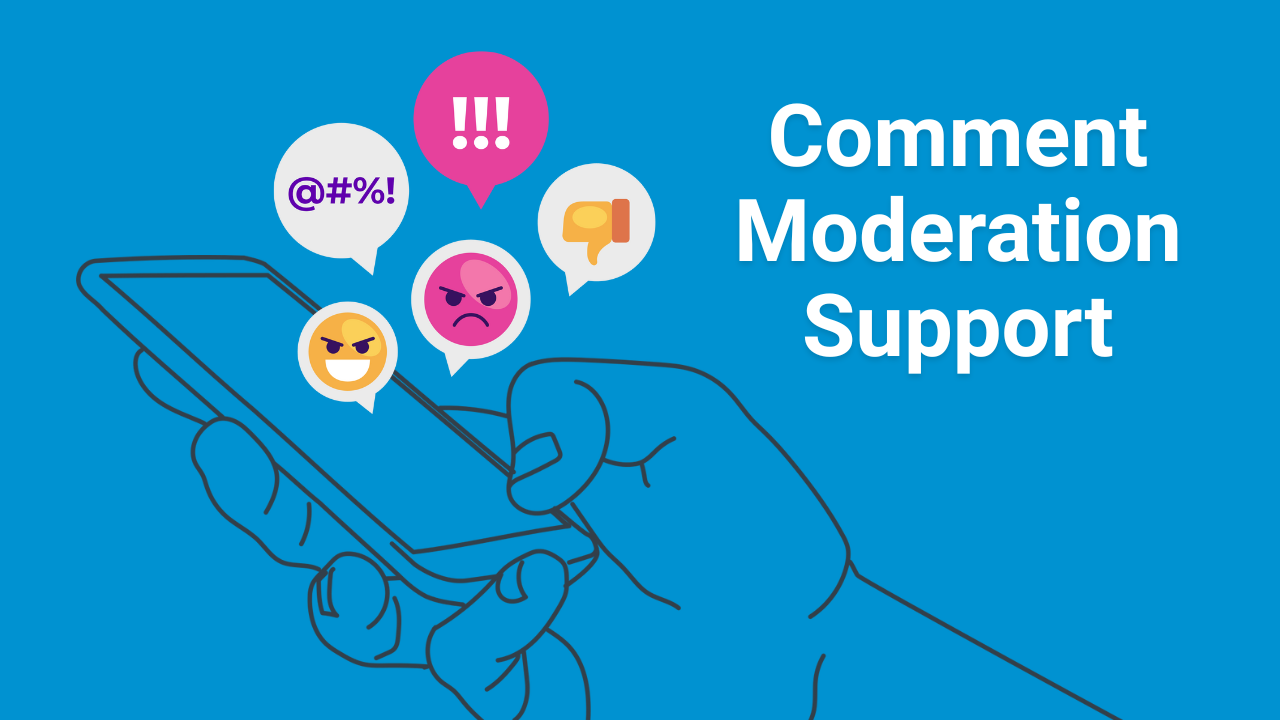
12 traits of a great socialgov service star
Nov 08, 2021Contributed blog by Russel Lolacher, Director of Web and Social Media Services for the BC Ministry of Transportation and Infrastructure and author of the Relationships at Work blog
“In many ways, effective communication begins with mutual respect, communication that inspires, and encourages others to do their best.” – Zig Ziglar
To successfully embrace social media customer service, the focus of your interactions need to be far more in the intent and use of the tool than the tool itself and its features. Twitter, Facebook, Instagram aren’t inherently “social,” it’s the humans operating the tools to engage and connect with your customers that make them so and offer the opportunity to build a relationship of trust.
And it’s those digital front-line staff that have to be the right fit, for your customers and your organization.
Frequently referred to as “community managers” these individuals or teams work to do what the name suggests: manage your community. This can include a variety of tactics, including answering questions, listening to concerns, sharing yours and others’ information, remarking on the activities of others… all to foster connections with their audience. Really all the things you do to build trust and relationships with others.
Keep in mind, this should be about being “social” and not about broadcasting. It’s the difference between talking with someone, to talking at someone. The former being a much stronger case for relationship building and community forming.
So, what are the skills or traits needed to really and truly be a great (not good) social government customer care star? Sure, we could say “strong communication skills,” but what does that actually mean? I’ve always found that way too vague and generic. So below I’ve outlined 12 skills and traits to hire for, cultivate around and nurture in others to better build relationships:
- Empathic – it’s not about you; it’s about them, the customer. To best serve and communicate with others, it’s vital that you put yourself in their shoes by understanding, sharing, and taking on the feelings of your audience. Remember, you have no idea the day they’ve had or the steps they’ve needed to take before they engage with you. Be their friend, not another challenge to overcome.
- Patient – not everything is easy to explain or understand. Give your community time to formulate and explain their situation, concerns, or ideas. Providing space for the discussion to happen will help clarify any misconceptions and ensure you and your audience are on the same page.
- Active Listener– almost all engagement is around being heard. If your audience really feels that you are indeed listening to them, it’ll go a long way to further building your community. Be present and take in everything that’s being said, repeating back to the member of the public, if necessary, to ensure they know they were heard. In my experience, active listening and acknowledgement has resolved 80 percent of customer concerns.
- Helpful – make sure you are working to solve their problem. If your community is engaging with you, it’s because they care, and they want to feel the same from you, whether it’s answering questions, receiving their ideas or directing them to more valuable information.
- Personable – people want to talk to people, not messaging. All communication through social channels should feel like you’re talking to a person… with feelings, thoughts and in an inviting environment. Any “key messaging” or formulaic text you are presented with, should be rewritten to a more conversational tone. For example, say “we” instead of “The organization”, “The ministry”, “The department”, etc.
- Proactive/Social – it’s important to be paying attention to what’s going on in your niche (for our team at TranBC, it’s obviously all things BC Transportation and Infrastructure) so reaching out to others in your community, asking questions, sharing content or becoming more aware of issues being raised, is vital to building relationships and trust. How are you supposed to make friends if you only want people to listen to you?
- Timely – expectations from the public around how long it takes to respond to questions and comments on social media is rising. The longer it takes to get back to someone, the more it’s believed you aren’t taking them seriously, don’t know the answer or don’t plan to help. Responding quickly with the answer or at least keeping them in the loop that you are working on an answer, is essential.
- Collaborative – as a representative of your organization to the public, you are not an island. You are part of a larger organization with a vast amount of knowledge and experience. A great community manager works as much with their internal community to build trust as they do with their public one.
- Consistent – consistency builds trust and trust builds a community. The public, your audience, needs to know that you’re dependable in tone, language, activity, personality, and accessibility. Any sizable variation in that consistency can fracture relationships.
- Objective and Open Minded – great community managers know they can’t take things personally. They represent the organization and are the first point of contact for a lot of people so it’s important to keep emotions in check, focusing on just trying to help and knowing when to take a break for your mental health.
- Authoritative – they’ve come to you for a reason. They are relying on you to be a trusted resource, accurate and reliable. As the face of your organization, you must be that for them.
- Communicative – you can’t over communicate. On a platform where tweets last seven minutes and fresh content is delivered in tsunamis, messages can get lost or make time feel it has gone on longer than it has. Connect, engage and follow up. Don’t assume your customer understands. Don’t assume they “got the message.” Don’t assume. Period. Talk with them.
To be successful in social media customer service, it’s important to understand the “social” aspects of the platforms and that it takes strong relationship building skills to foster a community, nurture trust and improve engagement. Otherwise, you’re just talking at people, not with them. And that’s not very social.
A successful community manager is as much, if not more, a member of the community as they are a facilitator of it.
 Russel Lolacher
Russel Lolacher
Director of Web and Social Media Services for the BC Ministry of Transportation and Infrastructure
Russel defines and leads TranBC and @DriveBC in social customer care, emergency communications and public engagement. Sharing his thoughts through his blog, Relationships at Work, he has been internationally recognized as a top customer service expert by Microsoft and Hootsuite and in Forbes and Huffington Post. Follow Russel on LinkedIn.
Best communicate with the public you serve by becoming a part of the free Government Social Media network — only available to full/part-time employees of government or educational institutions.
We support the largest network of government social media professionals in the U.S. by guiding government agencies through complex social media issues. Government Social Media helps you successfully communicate with the public you serve, protect your agency and keep public trust while finding your support community.
Government Social Media® empowers government professionals to achieve mastery in social media through conferences, online training, and association membership. Best communicate with the public you serve and get connected with fellow socialgovs by registering for the 2026 Government Social Media Conference happening in New Orleans, LA and virtually from wherever you are! Join the free GSM Network for text-only chats on socialgov topics or access the Government Social Media Association (GSMA) for regional virtual meetups and educational webinars.









